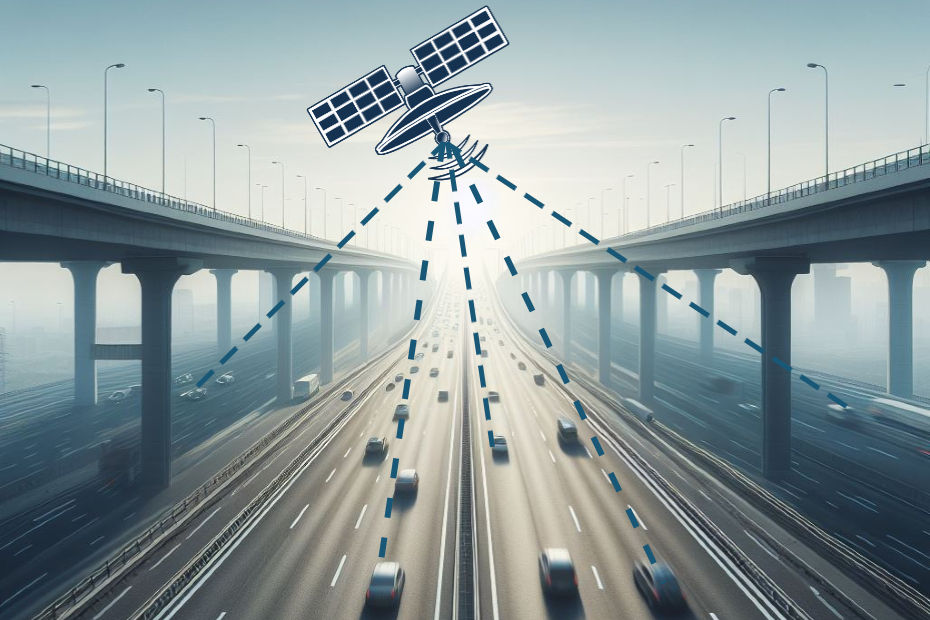How it Works: Satellite-based Toll Collection System To Replace Toll Plazas
Modified On Apr 02, 2024 11:10 AM By Ansh
- Write a comment
Fastag was not effective enough to free us from long lines at toll plazas, so Nitin Gadkari wants to employ the next level of technology available to help us save time

Over a decade ago, the collection of tolls on highways was purely done in cash or via cards, until FASTags were introduced in 2014. The introduction of FASTags made the toll payment process quicker and more seamless, and was only made mandatory for every single car and toll booth from January 2021. However, Union Minister Nitin Gadkari is planning to make FASTags and even toll plazas completely obsolete with a new satellite-based toll collection system. Learn more about what this space-age system is and how it works in this detailed article.
What Is GPS Based Toll Collection
The traditional way of paying your dues for using a toll road and/or highways was at the toll collection plaza, a large structure that’s built at much expense and requires a lot of manpower to operate smoothly. Even with FASTag, vehicles need to slow down considerably to get scanned through for the toll payment, which still creates a traffic jam, especially in case of large commercial vehicles. However, the GPS-based toll collection system uses satellites and tracking systems installed in cars that will measure the distance travelled by your car and the toll will be charged based on the distance covered.
Also Read: 3 Ways Hybrids Could Become More Affordable In India
How Will It Work

The implementation of this new method will not be easy and it will take a few years for every car to be equipped with the technology. However, if implemented successfully, this is how the process will work.
-
The cars will have to be equipped with an OBU (on-board unit) which acts as a tracking device for the toll collection system.
-
The OBU will track the coordinates of your car when you are driving on highways and toll roads, and those coordinates will be shared with the satellite to calculate the distance you have travelled.
-
This system will work using GPS (Global Positioning System) which will operate using the GNSS (Global Navigation Satellite System) that will help maintain accuracy in the distance calculation.
-
There will also be cameras placed on these highways to ensure that the distance is being measured properly by comparing the coordinates of the car with the image taken. The camera can also help in finding out which cars don’t have OBUs, or might have it disabled, by running the number plates against the satellite tracking and toll collection data.
-
Initially, this toll collection system will be implemented on just a few major highways and expressways across the country.
The OBUs are key to this system, just as much as the satellites and the tracking softwares. However, it is not already present in cars and will have to be installed externally. As of now, there is no information about how and where to get these OBUs, but the process might be similar to FASTags when they were initially introduced. This is how we think the process will be.
-
Much like FASTags, these OBUs will be available through government websites, where you’ll be able to order them by entering your car's registration number and completing a KYC.
-
Once you apply for the OBU, you’ll have to get it linked to your bank account.
-
After the implementation of this toll collection system, car manufacturers might just start selling their cars with OBUs already installed at the time of delivery, which you can then link to your bank account.
-
Just like FASTags, banks and private companies might also start selling OBUs.
-
After installing the OBU in the car, based on the distance travelled, the toll amount will be automatically deducted from your linked bank account.
Advantages of GPS Toll Collection
In this process, since the data from the tracking device is shared directly with the satellite, the presence of toll plazas will not be required which will make the drive even more convenient and will also help you save the time you would otherwise have to spend waiting in lines.
Another advantage offered by this system is that users only pay for the section of the highways they use. Currently, the entry and exit points of toll roads and highways can be hard to monitor and you might have to pay for the whole stretch between toll plazas. The GPS-based system would cut these costs, which is especially handy for cross-country commercial commutes.
Will It Work In India?

The GPS-based toll collection system is not something entirely new as it has already been implemented in countries like Germany and Singapore. In India, the biggest challenge is the sheer scale of the roadways that will have to be monitored by this system, as well as the wide variety of vehicles. The country is already quite adept at switching to digital transactions and new technologies for cost savings.
Also Read: Tata Nano EV Launch: Fact Vs Fiction
However, to do this, the current infrastructure based around FASTags will have to be removed, the new infrastructure will have to be created, which will not only take time, but will also be expensive. The cost of replacing the entire infrastructure could end up being passed on to the customer in the form of increased toll prices.
As of now, the GPS-based toll collection system seems like a good idea to keep India up to date with roadway technologies that would streamline the process. However, the implementation and adoption will not be easy, as witnessed with the FASTags. Ultimately, we reckon that if the government starts to work on it now, it’ll take around a decade for it to be implemented across the country.
4 out of 5 found this helpful















